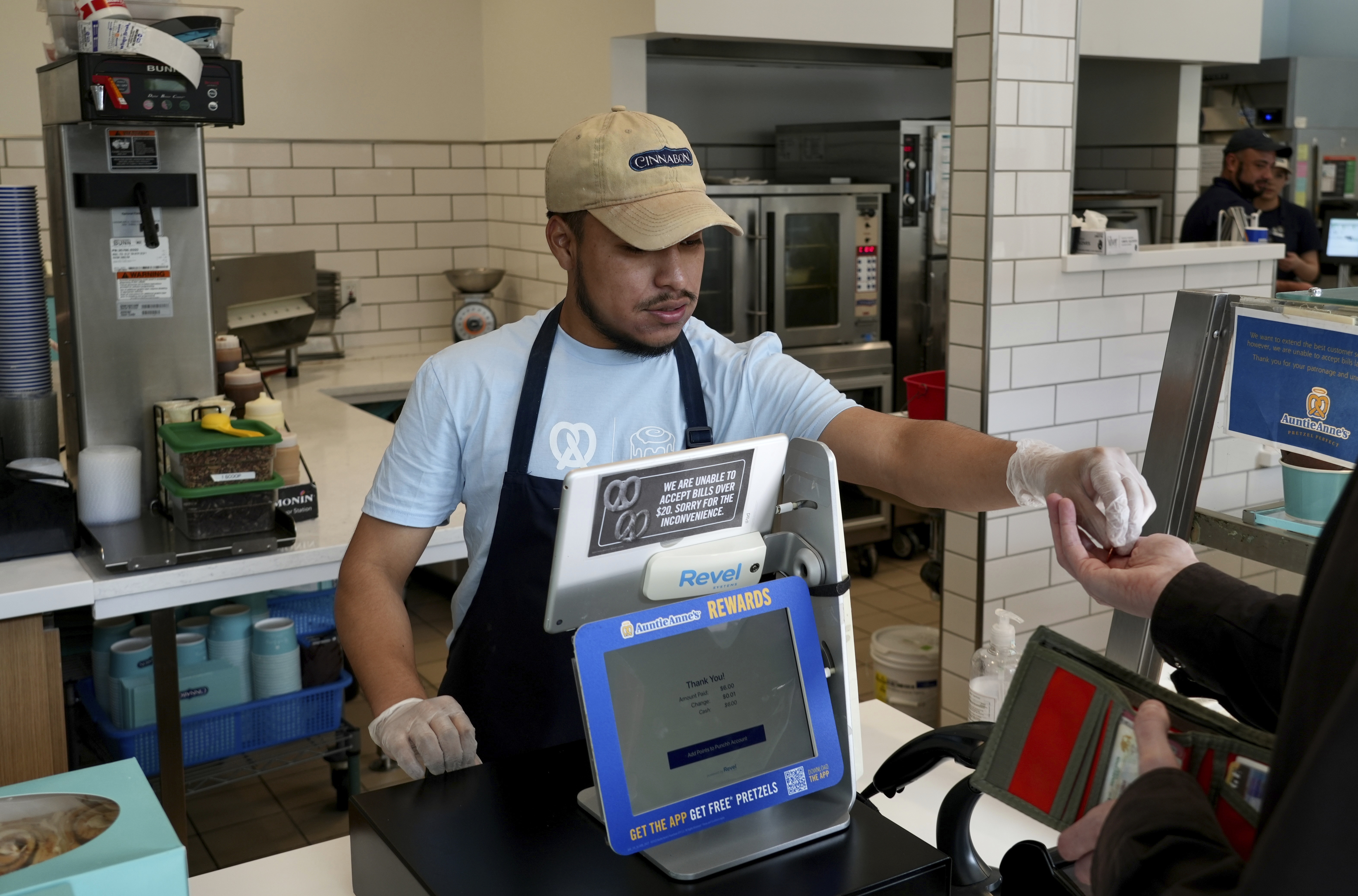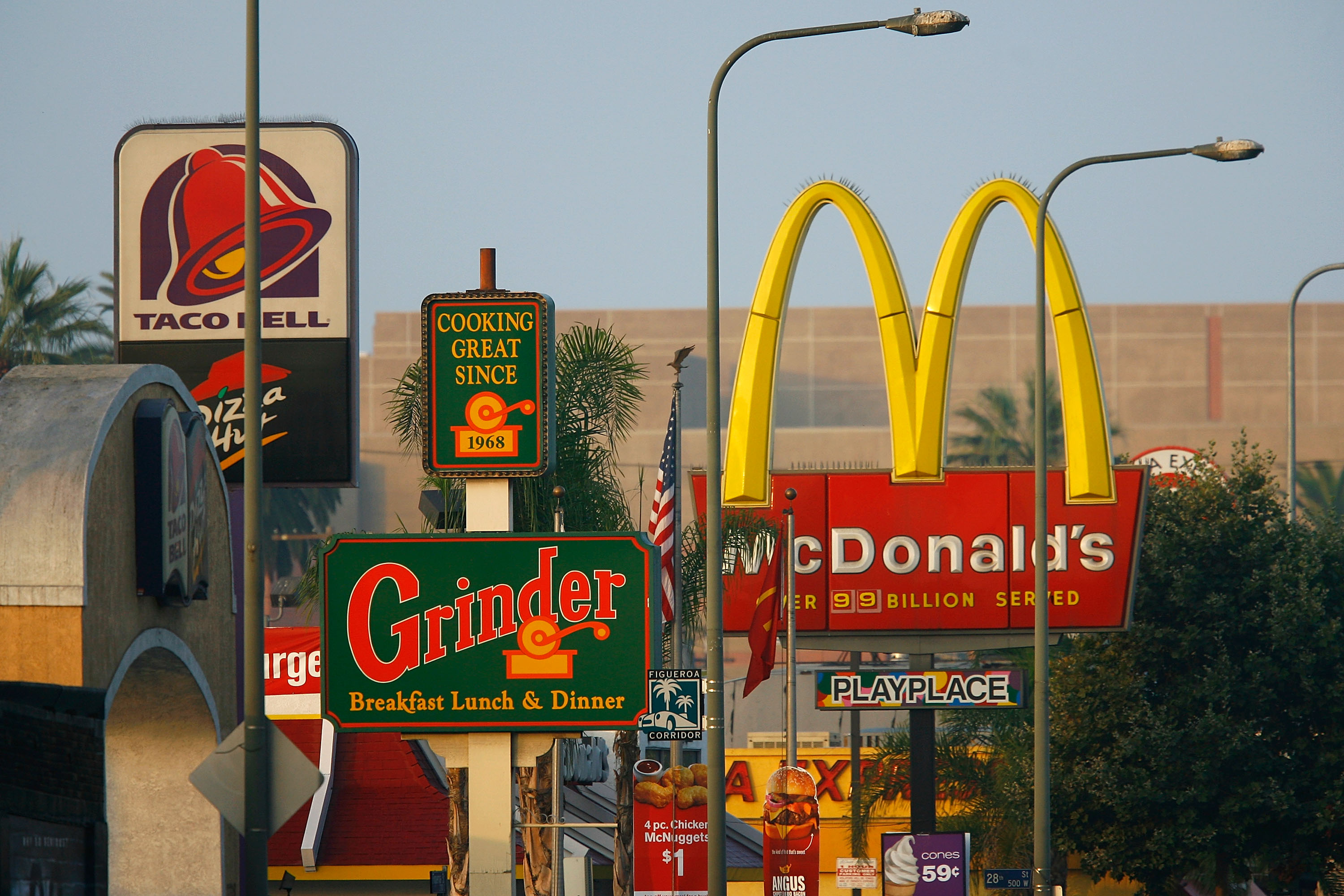Starting Monday, qualifying fast food workers in California must be paid a minimum wage of $20 an hour. This is due to a new state law which emerged from a deal between the fast food industry and union leaders.
However, there are quite a few exceptions to this law and plenty of confusion about which workers will be covered.
This new minimum wage only applies to chains with at least 60 locations nationwide, where customers typically order and select items before eating or drinking, with limited to no table service. Restaurants that produce and sell bread as a standalone menu item are exempt, but not if the dough is premade.
Restaurants at airports, hotels, event centers, theme parks, museums, and gambling establishments are also exempt.
"I think there’s a great deal of confusion within the restaurant industry on who is covered and who is not," said Michael Bernick, an employment attorney with Duane Morris and the former director of California's Employment Development Department.
"But there’s clearly a segment of workers--and it is a large segment-- that are covered," Bernick noted.
According to data from the Bureau of Labor Statistics from May of 2022, the more than 540,000 fast food workers and cooks in California earned an hourly mean wage of about $16.60 an hour. That's slightly above the state's basic minimum wage of $16 an hour.
Bernick explained that for decades, California has been trying, unsuccessfully, to increase the wages of the state's lowest wage workers.
Get a weekly recap of the latest San Francisco Bay Area housing news. >Sign up for NBC Bay Area’s Housing Deconstructed newsletter.
"But this is one of the first attempts beyond minimum wage to raise wages directly," he noted.
Bernick believes it will take some time to clarify the gray areas in the new law.
He noted that beyond the restaurant business, the state has many workers who make below $20 an hour in fields like residential care, long-term care, and retail.
"I know a good number of employers in these sectors are concerned that their workers will move out of long term care or care of the disabled, and move into fast food where they can -- at least currently -- earn more," Bernick said.
But on the other side of the coin, Bernick noted, this change might also drive wage competition.
"It could have this positive impact of increasing wages, where possible, in other non-hospitality fields," he said.
Another complicating factor, Bernick added, is that the fast food industry is already moving towards automation.
"We will have to see further whether this act helps accelerate that process of automation," he said.
Last week, one South Bay restaurant owner told NBC Bay Area he's not sure if he can afford the wages required by this law.
"As an owner or employer, you have to have coverage to pay them. If you cannot, you have to shut your door, or they’re gonna lose hours," noted Amir Samadi who owns a Round Table Pizza restaurant in San Jose.
Restaurant chains and employees are left with many questions about this change in wages.
To help address those questions, the state's Department of Industrial Relations posted a "Frequently Asked Questions" list this month to address queries it recieved about the new law.
If you believe you're covered by this law but aren't being paid accordingly, the Department of Industrial Relations notes you do have the option to file a claim through the state Labor Comissioner.
This new law also establishes a Fast Food Council, which can weigh whether to further increase the minimum wage or make other changes in the future.



